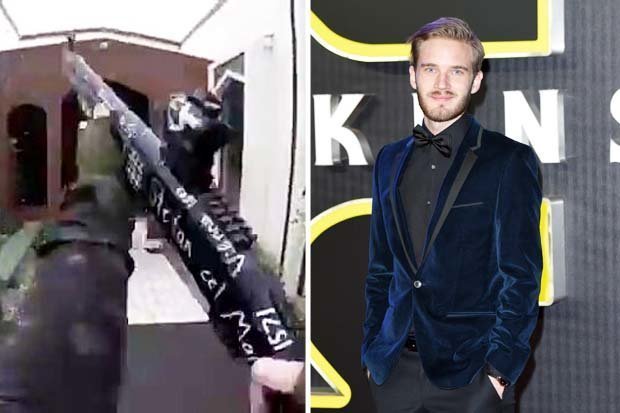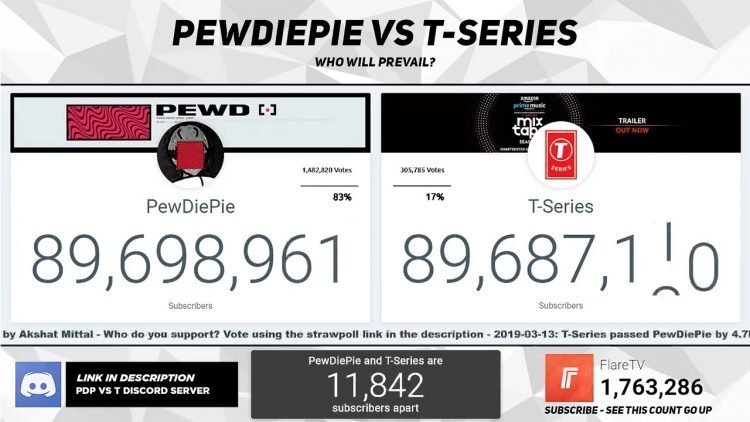The man who shot and killed 49 people at two mosques in Christchurch, New Zealand framed the attack as a real-life escalation of meme-based internet culture.
Police are currently investigating a sprawling 74-page manifesto that the 28-year-old suspect allegedly wrote and posted on social media shortly before the attack.
The document rails against Muslims and immigrants and includes several references to memes and video games.
The alleged shooter posted the manifesto, along with a link to the forthcoming live stream of the promised attack, on 8chan, one of the main online homes of meme-loving right-wing extremists.
In the post, he wrote that it was “time to stop shitposting and time to make a real life effort” — meaning, essentially, that it was time to stop fooling around on the internet and turn his extremist views into real-world action.
Then, right before the starting the attack — which he live-streamed to Facebook as if it were a first-person shooter video game — he paused to endorse a YouTube star in a video that appeared to capture the shooting.
“Remember, lads, subscribe to PewDiePie,” he said.
To an untrained eye, this would have seemed like a bizarre detour.
But the people watching the video stream recognized it as something entirely different: a meme.
With 89 million subscribers and a decade of history on the platform, PewDiePie (real name Felix Kjellberg) plays games, makes videos about Tik Tok compilations and discusses memes.
He’s been in a race with T-Series, an Indian production company that uploads clips from Bollywood movies, to see who can have the most subscribers on the platform.
“Subscribe to pewdiepie” became a rallying cry for his fans and soon spread throughout the web and beyond as a way to show one’s fluency with meme culture.
Like many of the things done before the attack on Friday — like the posting of a 74-page manifesto that named a specific internet figure — the PewDiePie endorsement served two purposes.
For followers of the killer’s videostream, it was a kind of satirical Easter egg.
“Subscribe to PewDiePie,” which began as a grass-roots online attempt to keep the popular YouTube entertainer from being dethroned as the site’s most-followed account, has morphed into a kind of all-purpose cultural bat signal for the young and internet-absorbed.
For everyone else, it was a booby trap, a joke designed to ensnare unsuspecting people and members of the media into taking it too literally.
The goal, if there was one, may have been to pull a popular internet figure into a fractious blame game and inflame political tensions everywhere.
In a tweet early Friday morning, PewDiePie, whose real name is Felix Kjellberg, said, “I feel absolutely sickened having my name uttered by this person.”
Just heard news of the devastating reports from New Zealand Christchurch.
I feel absolutely sickened having my name uttered by this person.
My heart and thoughts go out to the victims, families and everyone affected by this tragedy.— ƿ૯ωძɿ૯ƿɿ૯ (@pewdiepie) March 15, 2019
It is true Kjellberg has courted controversy by performing anti-Semitic gestures, which he calls satirical, in his videos.
He flirts openly with Nazi symbolism, and once used the “n” word in a livestream.
But other YouTubers like JackSepticEye, Markiplier and Elvis the Alien were quick to defend Pewds.
So sorry to see your name be attached to something so horrific.
— Jacksepticeye (@Jack_Septic_Eye) March 15, 2019
You had nothing to do with this. Full stop.
The shooter, who should be forgotten to the ass-end of history, is only trying to create division. Anyone that believes or spreads the message that you were associated with this in any way is doing exactly what the shooter wants.
— Markiplier (@markiplier) March 15, 2019
Anyone with a working brain knows you had absolutely nothing to do with this.
— Elvis The Alien (@ElvisTheAlienTV) March 15, 2019
Though Kjellberg is far from a saint, his allies say to condemn him and his supporters entirely only pushes his fans even farther away from the middle and towards extremist thought.
The danger of disaffected young men being radicalized online has been widely reported, and the terrorist’s aim to not only reach PewDiePie’s fanbase, but tether them to the blame, further feeds into the cycle.
The choices the shooter made — to post a manifesto to a known radical community, and to carry out the attack as if he was doing it “for the lulz” — were likely designed to entertain his fellow extremists, and above all, to help them see him as someone to admire and even copy.
The attack was teased on Twitter, announced on the online message board 8chan and broadcast live on Facebook.
The footage was then replayed endlessly on YouTube, Twitter and Reddit, as the platforms scrambled to take down the clips nearly as fast as new copies popped up to replace them.
Even the language used to describe the attack before the fact framed it as an act of internet activism.
In a post on 8chan, the shooting was referred to as a “real life effort post.”
An image was titled “screw your optics,” a reference to a line posted by the man accused in the Pittsburgh synagogue shooting that later became a kind of catchphrase among neo-Nazis.
And the manifesto — a wordy mixture of white nationalist boilerplate, fascist declarations and references to obscure internet jokes — seems to have been written from the bottom of an algorithmic rabbit hole.
Many recent acts of offline violence bear the internet’s imprint.
We know that the design of internet platforms can create and reinforce extremist beliefs.
But it would be unfair to blame the internet for this mass shooting.
Motives are complex, lives are complicated, and we don’t yet know all the details.
Anti-Muslim violence is not an online phenomenon, and white nationalist hatred long predates 4Chan and Reddit.
In many ways, the calls to ban PewDiePie from YouTube, as a response to this mass murder designed for the social media age, are proving the killer’s point.
The focus should remain on the actions of a crazy murderer, and the deaths of 50 innocent people.


Thank you jimhealth.tv very cool
Ah yes a ‘legit’ way of trying to start the restriction of the freedom of speech on the Internet by the stupid libtards.